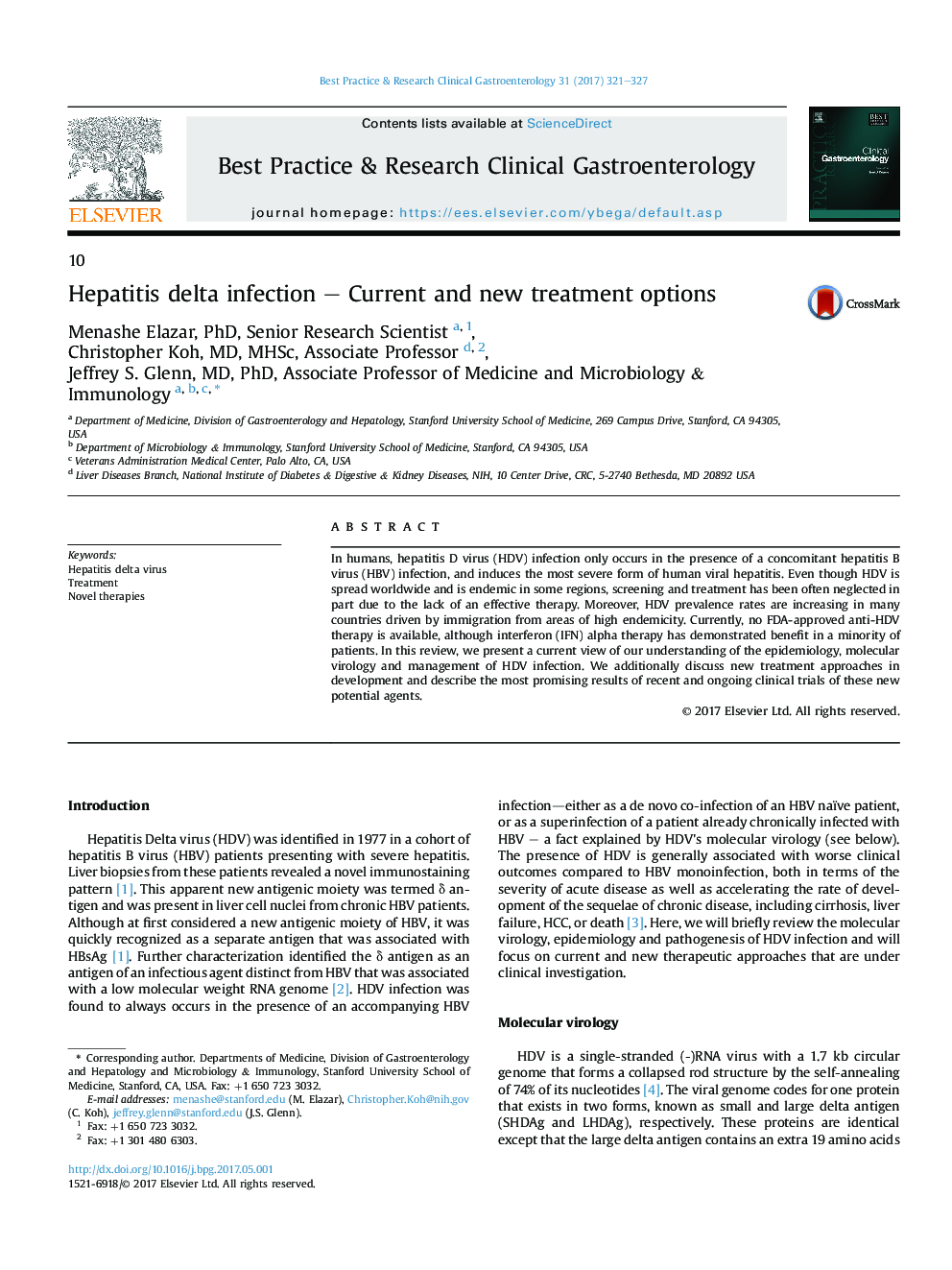| Article ID | Journal | Published Year | Pages | File Type |
|---|---|---|---|---|
| 5654500 | Best Practice & Research Clinical Gastroenterology | 2017 | 7 Pages |
In humans, hepatitis D virus (HDV) infection only occurs in the presence of a concomitant hepatitis B virus (HBV) infection, and induces the most severe form of human viral hepatitis. Even though HDV is spread worldwide and is endemic in some regions, screening and treatment has been often neglected in part due to the lack of an effective therapy. Moreover, HDV prevalence rates are increasing in many countries driven by immigration from areas of high endemicity. Currently, no FDA-approved anti-HDV therapy is available, although interferon (IFN) alpha therapy has demonstrated benefit in a minority of patients. In this review, we present a current view of our understanding of the epidemiology, molecular virology and management of HDV infection. We additionally discuss new treatment approaches in development and describe the most promising results of recent and ongoing clinical trials of these new potential agents.
